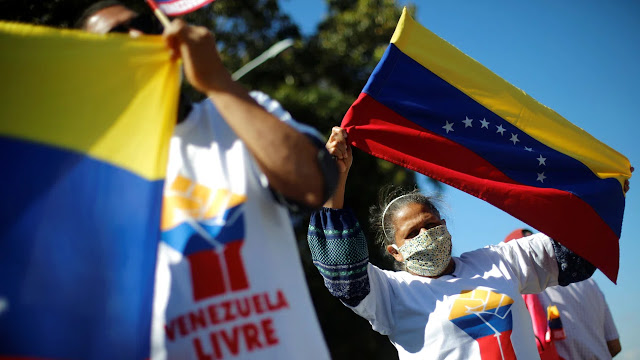A 2020 Catch-Up
A lot has happened in the world of Latin American politics since I last posted here in August of 2020. There is absolutely no feasible way for me to cover everything in the in-depth way that I would like to. Instead, here I will cover the highlights, writing a few sentences about each, as well as link an article about each one if you would like to read more about any particular event.
We'll start in Bolivia. Bolivians went to the polls in mid October to participate in a much anticipated presidential election. This was the first election since the ousting of long time president Evo Morales. Months before the election, Morales, who had held power since 2006, resigned the office of the presidency amid pressure from the armed forces and a growing mass protest movement. However, his party was still able to prevail at the polls as Bolivians chose Luis Arce to be their next president. Arce was a key member of the Morales Administration, and his victory signaled the continued prominence of the MAS (Movement Towards Socialism) party in Bolivian politics.
Next, we will move to Peru, which has had 3 different presidents since last summer. In November the Peruvian Congress impeached its very popular president Martin Vizcarra over corruption allegations dating back to his time as a state governor. Vizcarra's approval rating had remained above 50% even as deaths continued to rise due to COVID-19 and the country's economy began a downward turn. Congress replaced Vizcarra with its speaker Manuel Merino. This move kicked off a week of protests that culminated in two deaths and Merino resigning after a week in office. He has been replaced by Francisco Sagasti, a center left progressive who will hold the office until July of 2021.
Lastly, let's talk about Chile. In late October Chileans voted 78% to 22% in favor of drafting a new constitution. The referendum on whether or not to write a new constitution was proposed after weeks of protests that began in early October over a 4 cent increase in metro fares in Santiago. These protests blossomed into a nationwide movement centered around the economic grievances of working class people. Chile's current constitution was written by General Augusto Pinochet who ruled the nation as a repressive autocrat for 17 years from 1973-1990. The new constitution will be put forward for a national vote in 2022. Proponents of the new constitution hope it will foster the creation of a more equitable society.





Comments
Post a Comment